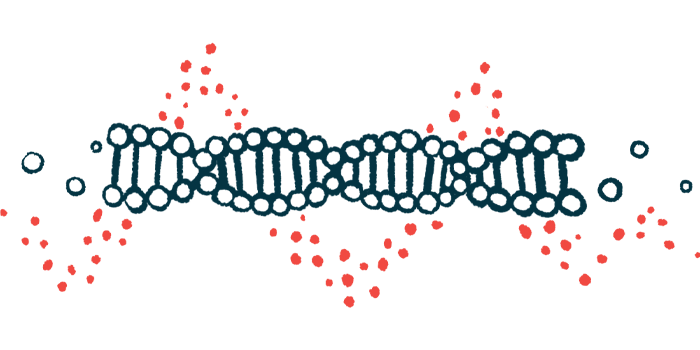USP8 mutations have little effect on Cushing’s surgical outcomes: Study
However, recurrence-free survival tended to be shorter with USP8 mutations
Written by |

The presence of somatic mutations in the USP8 gene, found in up to half of people with Cushing’s disease, appears to have no impact on how well patients fare after undergoing surgery to remove a disease-causing pituitary tumor, a study has found.
However, patients with USP8 mutations — all female in the study— tended to have a shorter recurrence-free survival, which refers to the length of time that patients lived without seeing their symptoms coming back, highlighting the need for genetic testing and personalized treatment for Cushing’s.
The study, “A long-term prognosis study of human USP8-mutated ACTH-secreting pituitary neuroendocrine tumours,” was published in the journal Clinical Endocrinology.
Cushing’s disease is caused by a tumor in the brain’s pituitary gland that releases high amounts of adrenocorticotropic hormone (ACTH), a molecule that signals the adrenal glands sitting atop the kidneys to produce cortisol. Too much cortisol in the body causes a wide array of symptoms.
Somatic mutations can occur after conception and are not passed on to children
Somatic mutations within a hotspot of the USP8 gene, which provides instructions to produce an enzyme of the same name, make up the most frequent genetic driver of Cushing’s. Somatic mutations can occur after conception in any cell in the body, except germ cells (egg or sperm cell), and are not passed on to children.
In pituitary tumors, USP8 mutations result in an overactive enzyme that fuels signaling via EGFR, a protein that helps cells grow in number more rapidly. The overactive enzyme also leads to the production of more ACTH than is wanted or needed.
To look for a link between USP8 mutations and clinical outcomes, researchers in China followed 48 people (42 female, six male) with a confirmed diagnosis of Cushing’s over a median of 62 months, or about five years, after they underwent surgery to remove a disease-causing pituitary tumor.
Genetic testing identified seven different USP8 mutations in 24 (50%) patients, all female. These genetic variants were p.Ser718Pro (nine patients), p.Ser719del (six), p.Pro720Arg (five), p.Pro720GIn (two), p.Ser718del (one), and p.Ser718Phe (one). One patient carried both the p.Ser718Phe and p.Lys713Arg variants.
Age at the onset of symptoms, age at the time of surgery, tumor size, and levels of cortisol and ACTH in the blood or urine didn’t differ significantly between patients with or without USP8 mutations.
Patients with p.Ser719del were nearly twice as old as those with p.Pro720Arg at the time of surgery (47 vs. 24 years). In turn, three patients (60%) with p.Pro720Arg and two (33%) with p.Ser719del had a macroadenoma, or a large pituitary tumor, while none in the p.Ser718Pro group did.
Most patients in remission after surgery, regardless of USP8 gene mutations
Over a median of 62 months of follow-up, 37 patients (77%) achieved immediate remission, or low levels of cortisol requiring hormone replacement with glucocorticoids. This proportion was similar between patients with or without USP8 mutations (79% vs. 75%).
Recurrence, or the return of symptoms caused by high levels of cortisol, occurred in four patients (21%) with USP8 mutations and in two (13%) without. However, recurrence-free survival tended to be shorter in those with USP8 mutations (76.7 vs. 109.2 months, or about 6.4 vs. 9.1 years).
While surgical outcomes did not differ significantly between patients with and without USP8 mutations, “a long-term follow-up revealed a tendency toward shorter recurrence-free survival in USP8-mutant patients,” the researchers wrote.
While larger studies are needed to confirm a link between USP8 mutations and recurrence-free survival, “USP8 status provides insight for a better understanding” of how to manage Cushing’s.







